
Professor Matthew Moran
Head of the Department of War Studies
- Professor of International Security
Research interests
- Conflict
- International relations
- Policy
- Politics
- Security
Biography
Matthew Moran is a Professor of International Security at King’s College London and currently serves as Head of the Department of War Studies, overseeing the strategic direction and daily management of one of the University’s largest departments. His previous roles include Director of Research in War Studies and Co-Director of the Centre for Science and Security Studies.
Dedicated to producing academically rigorous yet policy-relevant work, Professor Moran has an extensive record of engagement with the policy community. This includes executive education and professional development collaborations with the Foreign and Defence Ministries of several governments, both in an advisory capacity and through the design of bespoke courses.
His public engagement includes contributions to outlets such as BBC News, The Guardian, The Telegraph, Prospect, Le Monde Diplomatique, The Conversation, France24, and Le Courrier International.
Professor Moran holds undergraduate and master’s degrees from the University of Galway and a PhD from University College London. His research has been supported by the British Academy, the Economic and Social Research Council (ESRC), the Carnegie Corporation of New York, the MacArthur Foundation, and various national governments.
Research
Professor Moran’s research interests focus on understanding the social and political factors underlying significant security-related events. His work spans four key areas:
- The causes of collective disorder and rioting
- The nature and drivers of coercive influence in the international system
- The role of weapons of mass destruction (WMD) in international politics
- The evolution and use of open-source material for investigative and intelligence purposes
He is the author or editor of eight books, including a forthcoming study of chemical weapons use in Syria, to be published by Oxford University Press, as well as numerous academic articles.
Teaching
- Armchair Intelligence: Open Sources and Online Investigation (MA)
- Hacking Defence Problems (MA)
PhD supervision
Professor Moran is willing to provide PhD supervision in any of his areas of research interest.
Publications
Books
- Coercing Syria on Chemical Weapons: A Case Study of Deterrence and Coercive Diplomacy (Oxford University Press, 2025) [with Wyn Bowen and Jeffrey Knopf]
- Trust in Nuclear Disarmament Verification (Palgrave Macmillan, 2018) [with Wyn Bowen, Hassan Elbahtimy and Christopher Hobbs].
- Living on the Edge: Iran, Nuclear Hedging and Countering Proliferation (Palgrave Macmillan, 2016) [with Wyn Bowen and Dina Esfandiary].
- Riots: An International Comparison (Palgrave Macmillan, 2016) [with David Waddington].
- Open Source Intelligence in the Twenty-First Century: New Approaches and Opportunities (Palgrave Macmillan, 2014) [with Christopher Hobbs and Daniel Salisbury].
Articles
- ‘The Obama Administration and Syrian Chemical Weapons: Deterrence, Compellence, and the Limits of the “Resolve plus Bombs” Formula’, Security Studies (2020), Vol.29, No.5, pp.797-831. [co-authored with Wyn Bowen and Jeffrey Knopf] https://doi.org/10.1080/09636412.2020.1859130.
- ‘Fusing Algorithms and Analysts: Open-Source Intelligence in the Age of “Big Data”’. Intelligence and National Security 33, no.3 (2018): 391-406, https://doi.org/10.1080/02684527.2017.1406677
- ‘Terrorism and the banlieues: The Charlie Hebdo Attacks in Context’. Modern and Contemporary France 25, no.3 (2017): 315-332, https://doi.org/10.1080/09639489.2017.1323199
- ‘Living with Nuclear Hedging: The Implications of Iran’s Nuclear Strategy’, International Affairs (2015), Vol. 91, No. 4, pp. 687-707. [co-authored with Wyn Bowen] https://doi.org/10.1111/1468-2346.12337.
Book chapters
- ‘Sanctions, Deterrence and the Recent Case of Russia’, in Ksenia Kirkham (ed.), The Routledge Handbook of the Political Economy of Sanctions (Routledge, 2024), pp.59-75 [co-authored with Wyn Bowen].
- ‘Armchair Safeguards: The Role of OSINT in Proliferation Analysis’, in Christopher Hobbs, Matthew Moran and Daniel Salisbury (eds.), Open Source Intelligence in the Twenty-First Century: New Approaches and Opportunities (Palgrave Macmillan, 2014), pp.65-80 [co-authored with Christopher Hobbs].
Research

Cyber Security Research Group
CSRG promotes research into cyber security bringing together experts from diverse disciplines.

Nuclear Security Culture Programme
The Nuclear Security Culture Programme (NSCP) works in partnership with governments and industry around the world to strengthen nuclear security.
Project status: Ongoing

Conflict Records Unit
The Conflict Records Unit specialises in primary sources of contentious, war-related provenance and enduring historical value
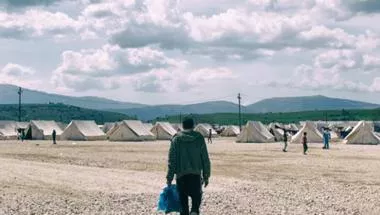
Centre for Conflict & Health Research
Cross disciplinary initiative studying the intersection of global health, security, and political governance in conflict-affected fragile states and regions.

King's Cybersecurity Centre
An EPSRC-NCSC Academic Centre of Excellence in Cyber Security Research (ACE-CSR). It provides expertise on most areas of cyber security, it has a critical mass of researchers working on three main research themes and their interrelationship.
News
Alumni celebrate 30 years of War Studies BA programme
The Department of War Studies at King’s College London hosted an alumni reunion at King’s Strand Campus, celebrating 30 years of the War Studies BA programme.

Juliette Pattinson appointed as Professor of War Studies
With over 20 years of experience in academia and having served as the Director of the Division of Arts and Humanities at the University of Kent, Professor...
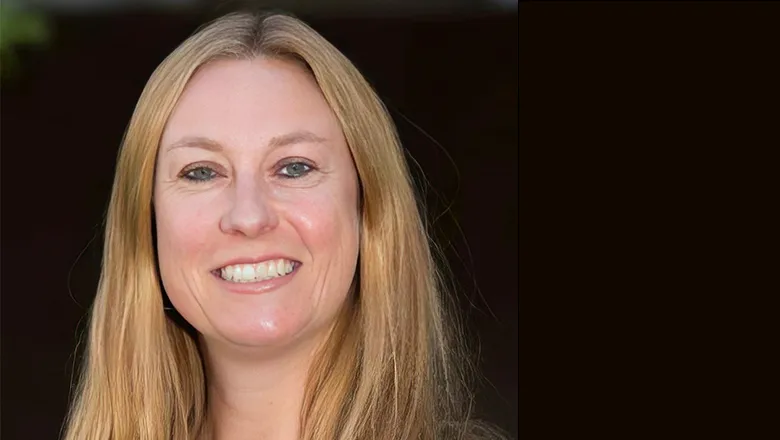
War Studies students develop solutions to address national security challenges
As part of the 'Hacking Defence Problems' module, MA students worked with the Ministry of Defence in addressing emerging threats and security challenges,...
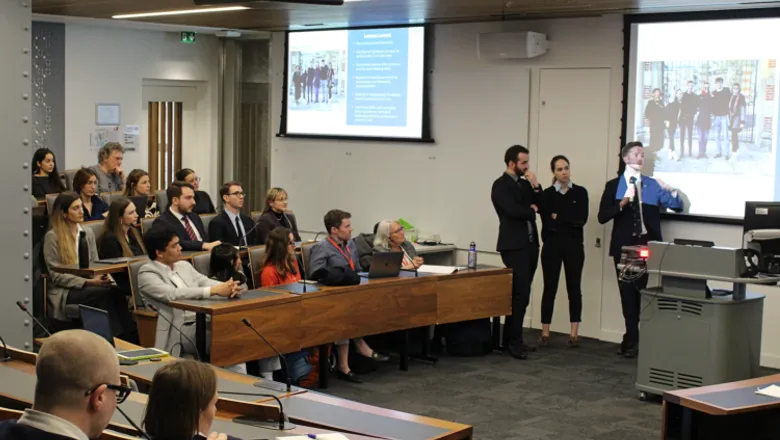
Latest edition of the Nuclear Security Briefing Book (NSBB) published
To reflect latest developments in nuclear security, an updated edition of the Nuclear Security Briefing Book (NSBB) has been published.

Wargaming the Pandemic's Effects
KCL's Wargaming Network explores how novel wargaming methods can help us understand the short and long-term effects of the COVID-19 pandemic.

Events
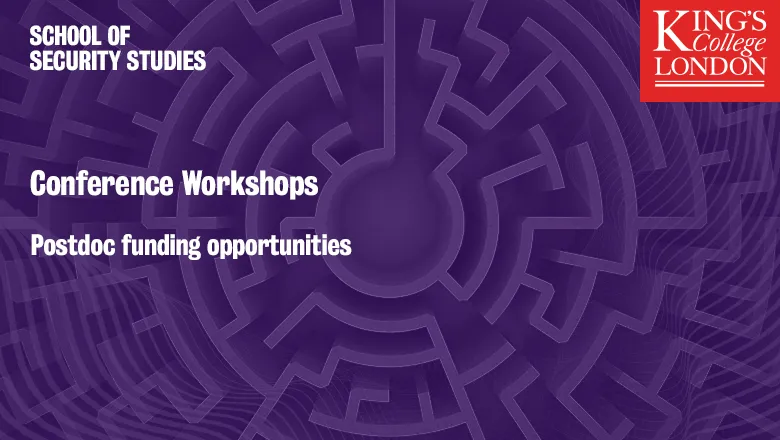
Postdoc Funding Opportunities [INTERNAL EVENT]
A workshop providing an introduction to postdoctoral funding
Please note: this event has passed.
Features
How are digital sleuths making their mark on the Ukraine war?
MATTHEW MORAN: How is open source intelligence affecting the war in Ukraine?

Brexit and beyond: UK Sanctions Policy
Brexit has the potential to significantly undermine the role and reputation of the UK as an international sanctions actor.
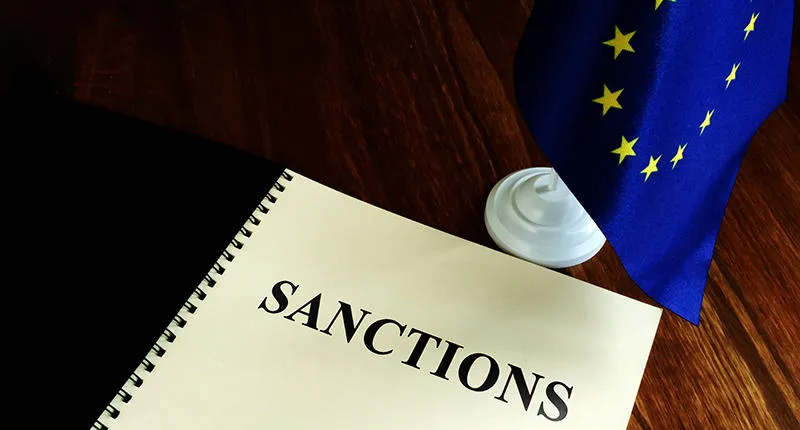
Why is the new Global Human Rights Sanctions regime significant?
With Brexit on the horizon, the UK is launching its first major sanctions regime independent of Europe.

Spotlight
Strengthening global nuclear security
War Studies researchers have played a significant role in supporting initiatives around the world to reduce the risks associated with nuclear weapons.

Research

Cyber Security Research Group
CSRG promotes research into cyber security bringing together experts from diverse disciplines.

Nuclear Security Culture Programme
The Nuclear Security Culture Programme (NSCP) works in partnership with governments and industry around the world to strengthen nuclear security.
Project status: Ongoing

Conflict Records Unit
The Conflict Records Unit specialises in primary sources of contentious, war-related provenance and enduring historical value

Centre for Conflict & Health Research
Cross disciplinary initiative studying the intersection of global health, security, and political governance in conflict-affected fragile states and regions.

King's Cybersecurity Centre
An EPSRC-NCSC Academic Centre of Excellence in Cyber Security Research (ACE-CSR). It provides expertise on most areas of cyber security, it has a critical mass of researchers working on three main research themes and their interrelationship.
News
Alumni celebrate 30 years of War Studies BA programme
The Department of War Studies at King’s College London hosted an alumni reunion at King’s Strand Campus, celebrating 30 years of the War Studies BA programme.

Juliette Pattinson appointed as Professor of War Studies
With over 20 years of experience in academia and having served as the Director of the Division of Arts and Humanities at the University of Kent, Professor...

War Studies students develop solutions to address national security challenges
As part of the 'Hacking Defence Problems' module, MA students worked with the Ministry of Defence in addressing emerging threats and security challenges,...

Latest edition of the Nuclear Security Briefing Book (NSBB) published
To reflect latest developments in nuclear security, an updated edition of the Nuclear Security Briefing Book (NSBB) has been published.

Wargaming the Pandemic's Effects
KCL's Wargaming Network explores how novel wargaming methods can help us understand the short and long-term effects of the COVID-19 pandemic.

Events

Postdoc Funding Opportunities [INTERNAL EVENT]
A workshop providing an introduction to postdoctoral funding
Please note: this event has passed.
Features
How are digital sleuths making their mark on the Ukraine war?
MATTHEW MORAN: How is open source intelligence affecting the war in Ukraine?

Brexit and beyond: UK Sanctions Policy
Brexit has the potential to significantly undermine the role and reputation of the UK as an international sanctions actor.

Why is the new Global Human Rights Sanctions regime significant?
With Brexit on the horizon, the UK is launching its first major sanctions regime independent of Europe.

Spotlight
Strengthening global nuclear security
War Studies researchers have played a significant role in supporting initiatives around the world to reduce the risks associated with nuclear weapons.

